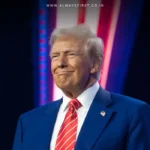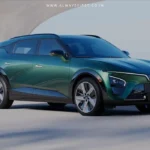
Summary:
- TikTok’s operations in the US face significant uncertainty due to national security concerns tied to its parent company, ByteDance.
- During Trump’s first presidency, stringent measures were enforced, including a law banning TikTok unless ByteDance sold its US operations.
- As President-elect, Trump has proposed a reversal of his earlier stance, aiming to allow TikTok to continue operating under new conditions.
Key Points:
- TikTok’s Brief Ban and Reinstatement
- January 19: TikTok was banned in the US due to non-compliance with a federal law requiring ByteDance to divest its US operations.
- The app briefly ceased operations, with users unable to access it, and Google and Apple removed TikTok from their app stores.
- President-elect Trump announced plans to extend the compliance deadline and restore TikTok services.
- TikTok resumed operations shortly after Trump’s announcement, thanking him for his efforts.
- Trump’s Shift in Stance
- During his first term, Trump strongly opposed TikTok, citing concerns over data sharing with the Chinese government.
- Now, Trump has expressed a “warm spot” for TikTok, highlighting its role in engaging young voters in his 2024 presidential campaign.
- Trump proposed a new framework, including a 50% US ownership stake in TikTok’s operations to address legal and security concerns.
- National Security and Legal Framework
- The US has strict regulations prohibiting foreign adversary-controlled apps.
- Trump’s administration seeks a balance between national security and leveraging TikTok’s massive user base for social and political engagement.
Implications:
- For TikTok: The app’s survival hinges on meeting compliance requirements, such as a potential joint venture with US-based ownership.
- For Users: Millions of American users may see uninterrupted access to TikTok, contingent upon successful negotiations.
- For Policy: This signals a potential softening of hardline policies toward Chinese technology companies under Trump’s second term.
Curiosity Spark: How will Trump’s evolving approach to Chinese tech companies shape the broader US-China technology relationship?









































Leave a Reply